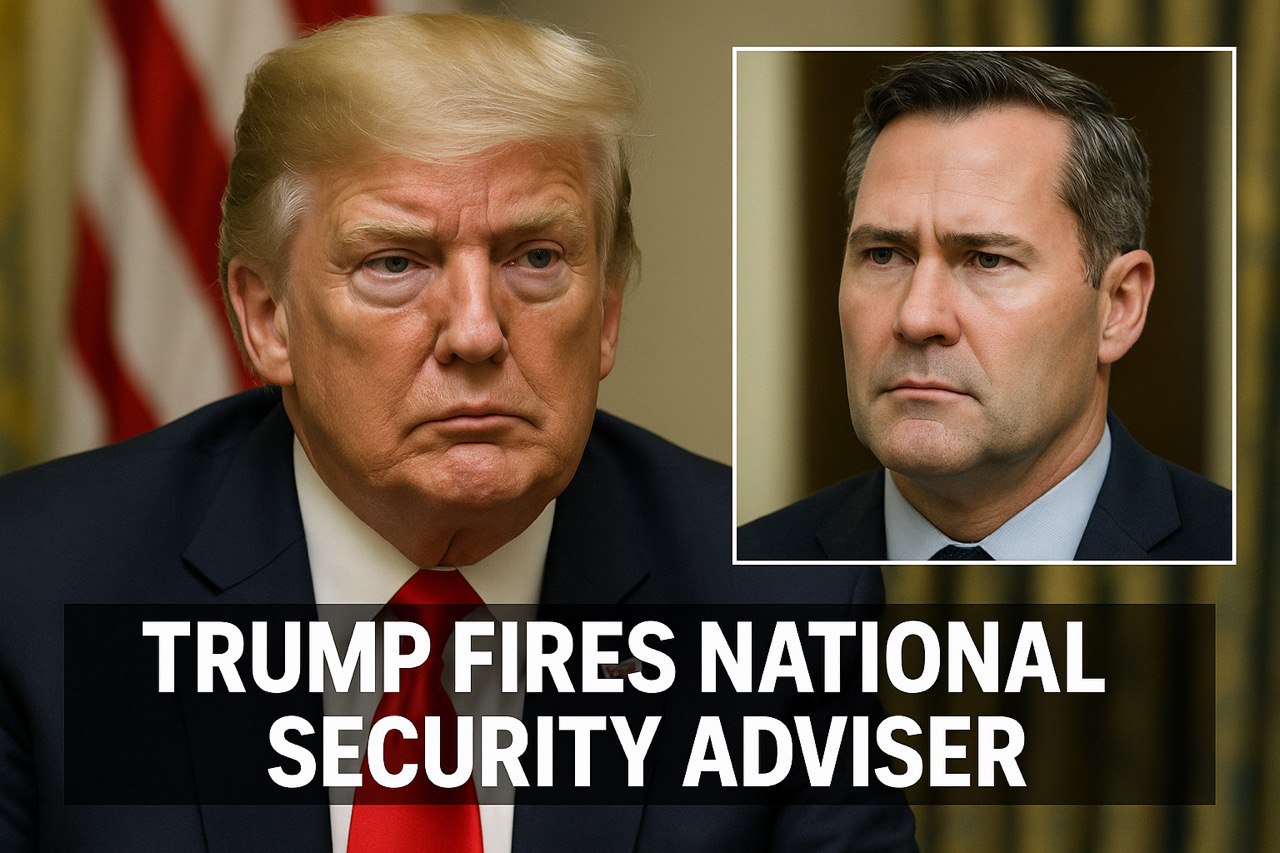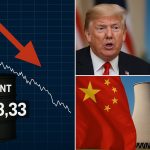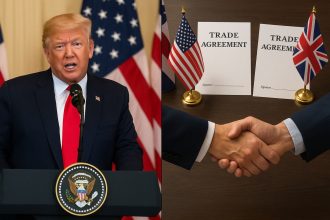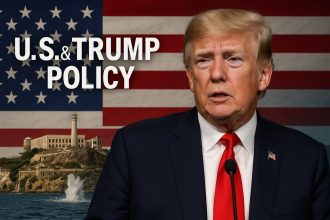Recent political maneuvers within the Trump administration, as of May 2, 2025, have captured significant attention, reflecting shifts in national security, government efficiency, and foreign policy. These changes, involving the ousting of national security advisor Mike Waltz, a reevaluation of Elon Musk’s role, and a decision to step back from mediating Ukraine-Russia talks, underscore the administration’s dynamic approach to governance and international relations. This report provides a comprehensive analysis, drawing on recent news and official statements to explore the implications and context of these events.
Mike Waltz’s Ousting: The Signal Chat Scandal
The dismissal of Mike Waltz as national security advisor stems from a high-profile scandal involving a leaked Signal chat. On May 1, 2025, it was reported that Waltz inadvertently included Atlantic editor-in-chief Jeffrey Goldberg in a group chat discussing sensitive details about a military strike against Houthi rebels in Yemen (Fox News). This breach, dubbed “Signalgate,” led to significant criticism from Democratic lawmakers, with calls for his resignation or firing (POLITICO). The chat revealed discussions on the timing, sequencing, and results of the strikes, raising concerns about national security protocols.
President Trump responded swiftly, ousting Waltz from his role and nominating him as U.S. ambassador to the United Nations, a move interpreted variably as a promotion or a lateral shift to remove him from a sensitive position (Reuters). Marco Rubio, the Secretary of State, was appointed as interim national security advisor, a dual role not seen since Henry Kissinger in the 1970s (BBC News). This shakeup, occurring amidst ongoing global tensions, raises questions about the administration’s ability to manage sensitive information and maintain stability in national security leadership.
Elon Musk’s Role: Limiting Influence and Addressing Conflicts
Parallel to Waltz’s ousting, the Trump administration has moved to clarify Elon Musk’s role within the government. Musk, appointed head of the Department of Government Efficiency (DOGE), has been a polarizing figure, tasked with streamlining federal operations but criticized for heavy-handed tactics (POLITICO). On March 6, 2025, Trump convened his Cabinet, with Musk present, to emphasize that Musk’s role is advisory, with final decision-making authority resting with Cabinet secretaries (POLITICO). This clarification addresses growing concerns about conflicts of interest, given Musk’s business interests in Tesla and SpaceX, which hold significant federal contracts (NPR).
This move reflects Trump’s intent to balance Musk’s influence with governance needs, potentially reducing uncertainty among government employees and addressing legal and ethical concerns. However, it also highlights tensions within the administration, with Musk’s methods causing friction and his potential departure being discussed, as reported on April 2, 2025 (ABC News). The implications for government efficiency efforts remain uncertain, with debates over whether limiting Musk’s power will enhance or hinder these initiatives.
U.S. Stance on Ukraine-Russia Mediation: A Shift in Diplomacy
Simultaneously, the U.S. has announced a significant shift in its approach to the Ukraine-Russia conflict, deciding to step back from mediating peace talks. On May 1, 2025, State Department spokesperson Tammy Bruce stated that the U.S. will no longer act as a mediator, urging Kyiv and Moscow to present concrete proposals for ending the conflict (Kyiv Independent). This position was reiterated in a briefing, emphasizing that “we are not going to fly around the world at the drop of a hat to mediate meetings; that is now between the two parties” (Ukrinform).
This decision marks a departure from previous U.S. involvement, where diplomatic efforts included ceasefire proposals and mediation in international forums (CNBC). Secretary of State Marco Rubio added that the U.S. will evaluate within days whether a settlement is feasible, potentially redirecting focus if progress stalls (Reuters). The implications are significant, with potential for prolonged conflict without U.S. facilitation, and possible shifts in regional dynamics as other actors may step in.
Comparative Analysis and Implications
These events collectively illustrate a period of flux within the Trump administration, with each move reflecting broader strategic priorities. The Waltz scandal underscores the challenges of maintaining security in digital communications, while Musk’s limited role addresses governance and ethical concerns. The U.S. stepping back from Ukraine mediation aligns with a focus on domestic priorities, potentially reshaping international relations.
A comparative table highlights key aspects:
| Event | Details | Implications |
| Mike Waltz Ousting | Fired after Signal chat leak, nominated as UN ambassador, Rubio interim | Questions on security protocols, leadership stability |
| Elon Musk’s Role Clarified | Advisory role, no decision-making power, addresses conflicts of interest | Potential impact on government efficiency, reduced uncertainty |
| U.S. Mediation in Ukraine-Russia | No longer mediating, urges direct talks between parties | Possible prolonged conflict, shift in regional dynamics |
Market and Broader Impacts
Amid these political shifts, financial markets have shown increased volatility, with traders adjusting strategies based on geopolitical developments. Platforms like PocketOption have seen a surge in users trading forex, sensitive to such events, offering tools for individuals to engage with global trends.
Conclusion and Future Outlook
The recent actions by the Trump administration, as of May 2, 2025, reflect a period of significant change, with potential long-term effects on national security, government efficiency, and international relations. The ousting of Waltz, limiting of Musk’s influence, and stepping back from Ukraine mediation highlight a recalibration of priorities, with uncertain outcomes. Future developments will likely depend on how these changes are implemented and received, both domestically and globally.





